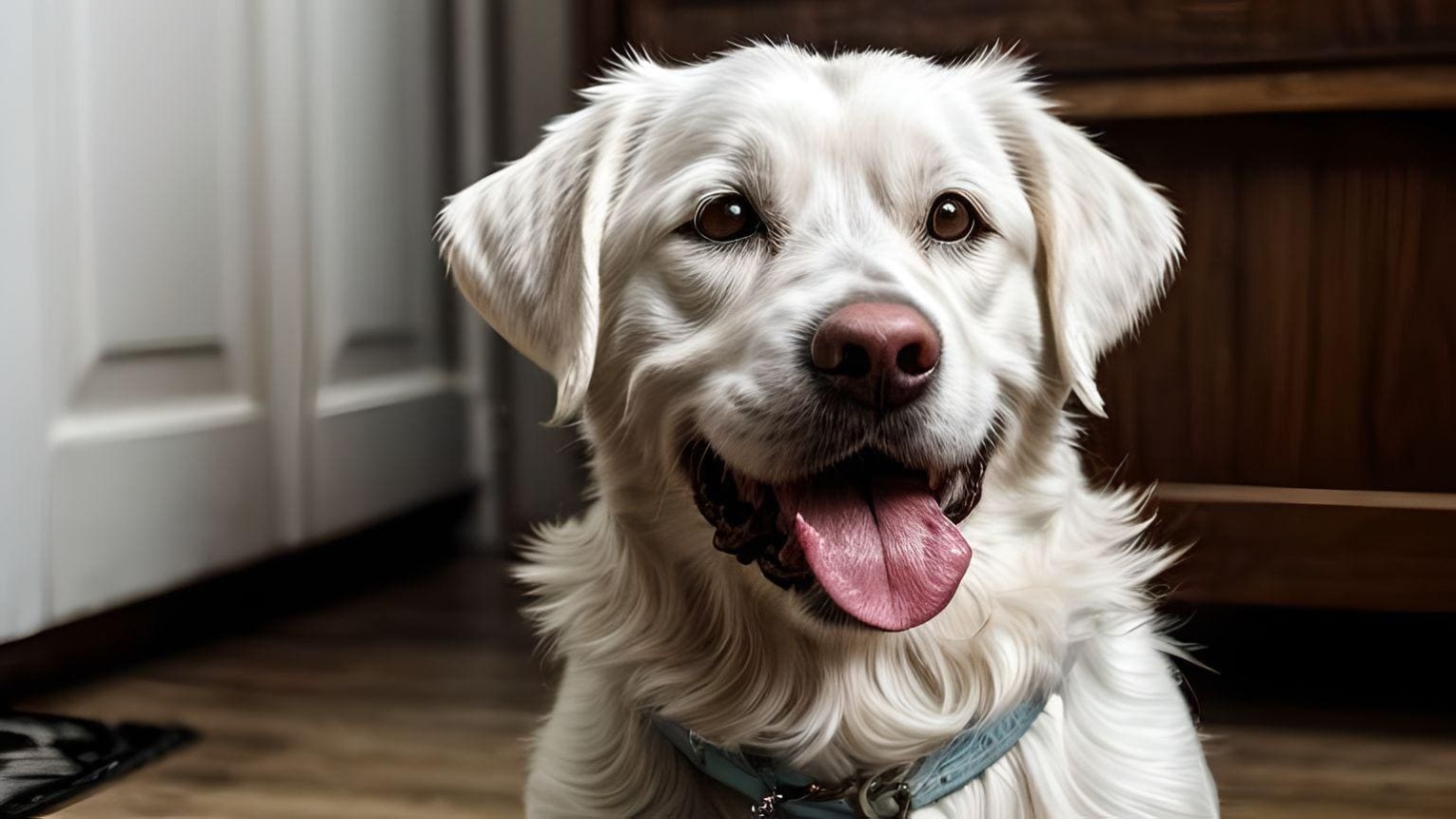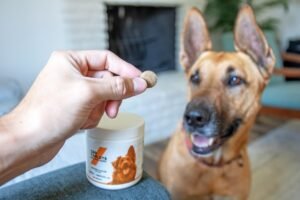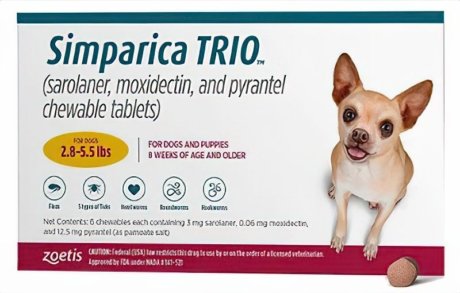Kennel Cough Symptoms | Recognizing and Managing Canine Respiratory Infections
As a dedicated dog owner, ensuring the well-being of your furry companion is paramount. One of the common health issues affecting dogs is kennel cough, a highly contagious respiratory infection that can make your dog uncomfortable. In this comprehensive guide, we will delve into the world of kennel cough symptoms, causes, treatment, prevention, and additional insights to equip you with a holistic understanding.
Understanding Kennel Cough (Kennel Cough Overview)
Kennel cough, scientifically known as infectious tracheobronchitis, is a highly contagious respiratory infection that affects dogs. It’s akin to a human cold, causing discomfort and a persistent cough in dogs. This condition can be caused by a variety of pathogens, including the Bordetella bronchiseptica bacterium and the canine parainfluenza virus.

Identifying Common Kennel Cough Symptoms
Recognizing the symptoms of kennel cough is crucial for early diagnosis and treatment. Here are some of the telltale signs:
1. Persistent Cough
The most noticeable symptom is a dry, hacking cough that often sounds like your dog is trying to clear their throat. This cough can be triggered by excitement, exercise, or any activity that agitates the throat.
2. Sneezing and Nasal Discharge
Dogs with kennel cough may also exhibit sneezing and have a runny nose, similar to humans with a cold.
3. Gagging or Retching
In severe cases, dogs may gag or retch due to irritation in their throat. This can be distressing for both the dog and the owner.
4. Mild Fever
Some dogs with kennel cough may run a slight fever, although this symptom is not always present.
5. Lethargy
A general lack of energy or enthusiasm is another common sign of kennel cough. Your dog may seem less active than usual.
Causes of Kennel Cough
Kennel cough is highly contagious and can spread through the air when an infected dog coughs or sneezes. It can also be transmitted through direct contact with contaminated surfaces or by sharing water bowls and toys with infected dogs.
High-Risk Environments
Certain situations and places can put your dog at a higher risk of contracting kennel cough. These include:
1. Boarding Facilities
When dogs are housed closely together, such as in boarding facilities, the risk of transmission increases. Make sure to inquire about their sanitation and vaccination protocols.
2. Dog Parks and Group Activities
Places where dogs interact closely with others, like dog parks and group training sessions, can be breeding grounds for kennel cough. Ensure your dog’s vaccinations are up-to-date before participating.
How Long Does Kennel Cough Last?
Kennel cough, also known as canine infectious tracheobronchitis, is a respiratory infection that affects dogs. The duration of kennel cough can vary depending on various factors, including the dog’s overall health, age, and the severity of the infection. Generally, kennel cough lasts for a period of 1 to 3 weeks, with most dogs recovering within this timeframe. However, it’s essential to note that the duration of the illness can be influenced by individual factors.
- Dogs with robust immune systems and good overall health tend to recover more quickly.
- Puppies, elderly dogs, or those with weakened immune systems may experience a more extended illness.
- Some dogs may continue to exhibit mild coughing or other symptoms even after the primary infection has cleared. It’s crucial for dog owners to monitor their pets’ condition closely during this period and seek veterinary care if symptoms worsen or persist beyond the typical duration.

What Does Kennel Cough Sound Like?
Kennel cough is characterized by a distinctive coughing sound that sets it apart from other respiratory conditions in dogs. The cough is often described as dry, harsh, and persistent. It can resemble a honking or hacking noise, similar to the sound of a goose honking. This coughing sound can be quite alarming for dog owners, as it can be loud and repetitive.
- The cough is usually more pronounced when a dog is active, excited, or during exercise.
- It may occur in bouts, with the dog coughing multiple times in succession.
- The honking or hacking noise is a result of irritation and inflammation in the dog’s trachea and bronchial tubes. Recognizing this distinctive cough is essential for identifying kennel cough, as it helps differentiate it from other respiratory issues in dogs.
How To Treat Kennel Cough?
Treating kennel cough primarily involves supportive care and addressing the underlying infection. While kennel cough is often a self-limiting condition that resolves on its own, there are steps that can be taken to alleviate symptoms and promote a faster recovery:
- Rest: Ensure that the affected dog gets plenty of rest to allow the body to heal.
- Isolation: Isolate the infected dog from other dogs to prevent the spread of the disease.
- Hydration and Nutrition: Maintain proper hydration and provide a balanced diet to support the immune system.
- Cough Suppressants: In some cases, veterinarians may prescribe cough suppressants to provide relief from persistent coughing.
- Antibiotics: If there is evidence of a secondary bacterial infection, antibiotics may be prescribed. It’s important to consult with a veterinarian for guidance on the most appropriate treatment plan for an individual dog, as treatment can vary based on the severity of symptoms and the dog’s overall health.
How Do Dogs Get Kennel Cough?
Dogs contract kennel cough through exposure to infectious agents, including viruses and bacteria, that affect the respiratory tract. The primary modes of transmission include:
- Close Contact: Dogs can get kennel cough by coming into close contact with infected dogs, especially in places where dogs congregate, such as kennels, dog parks, or grooming facilities.
- Shared Objects: Sharing contaminated objects like water bowls, toys, or bedding can facilitate the spread of the disease.
- Airborne Transmission: Kennel cough pathogens can be transmitted through respiratory droplets expelled when infected dogs cough, sneeze, or even through normal breathing. Prevention measures, such as vaccination, good hygiene practices, and minimizing contact with infected dogs, can help reduce the risk of transmission.

Can Cats Get Kennel Cough?
Kennel cough is primarily a disease that affects dogs and is caused by specific pathogens that target the canine respiratory system. While cats can experience respiratory infections, they typically result from different viruses and bacteria than those responsible for kennel cough in dogs. Therefore, kennel cough is not a common or direct threat to cats.
- Cats are more susceptible to illnesses like feline upper respiratory infections, which have distinct causes and symptoms from kennel cough.
- It’s still essential for cat owners to provide proper veterinary care and vaccinations to protect their feline companions from other potential respiratory illnesses.
Can Humans Get Kennel Cough?
Humans are generally not susceptible to kennel cough. Kennel cough is caused by pathogens that are specific to dogs and do not pose a significant risk to human health. The pathogens involved, such as Bordetella bronchiseptica, are adapted to the canine respiratory system and do not typically infect humans.
- While humans may come into contact with kennel cough pathogens through close contact with infected dogs, it does not lead to illness in people.
- Human respiratory infections are usually caused by different sets of viruses and bacteria. Therefore, the risk of humans contracting kennel cough from infected dogs is minimal.
Is Kennel Cough Contagious To Humans?
Kennel cough is not contagious to humans. As previously mentioned, the pathogens responsible for kennel cough are dog-specific and do not infect humans. While a person may have contact with a dog carrying these pathogens, it does not result in a human infection. Nonetheless, maintaining proper hygiene and taking precautions when caring for an infected dog can help prevent any potential transfer of contaminants.
Can Dogs Die From Kennel Cough?
Kennel cough is generally considered a mild and self-limiting condition in dogs. Most dogs recover with proper care, and it does not typically result in fatalities. However, there are exceptions and factors to consider:
- Puppies, elderly dogs, and those with weakened immune systems may be more vulnerable to severe complications.
- In rare cases, kennel cough can progress to pneumonia, which can be life-threatening if not promptly treated.
- The prognosis for an individual dog may depend on its overall health and the presence of underlying medical conditions. While the majority of dogs with kennel cough recover without issue, it’s crucial for dog owners to seek veterinary attention if their pet’s condition worsens or if they have concerns about their dog’s health.
Home Remedies For Kennel Cough
Home remedies for kennel cough are often used to provide comfort and support recovery. These remedies may include:
- Humid Environment: Increasing humidity in the dog’s living space can help soothe the irritated respiratory tract.
- Soothing Teas: Herbal teas like chamomile may be used to provide relief from coughing. Ensure they are safe for dogs and consult a veterinarian for guidance.
- Humidifier: Using a humidifier in the room where the dog rests can help ease dry coughing.
- Rest and Quiet: Rest is essential for recovery, so ensuring the dog has a quiet and comfortable space to recover is crucial. However, it’s important to consult with a veterinarian before implementing any home remedies, as they can provide guidance on safe and effective ways to support the dog’s recovery.

How Long Is Kennel Cough Contagious?
Kennel cough is typically contagious for a specific period, which can vary from dog to dog. Generally, a dog with kennel cough
can remain contagious for about 1 to 2 weeks after the onset of symptoms. During this time, the dog can continue to shed the infectious agents and potentially spread the disease to other dogs.
- Some dogs may stop being contagious earlier, while others may remain so for a longer duration.
- Even after the coughing has subsided, a dog may still shed the pathogens for some time. It’s essential to practice isolation and take precautions to prevent the spread of kennel cough during this contagious period.
Is Kennel Cough Deadly?
While kennel cough is typically not deadly and most dogs recover with proper care, there are exceptions. The severity of kennel cough can vary, and in some cases, it can lead to complications that pose a greater risk to a dog’s health.
- Pneumonia: Severe cases of kennel cough, especially if left untreated, can progress to pneumonia, which is a potentially life-threatening condition.
- Vulnerable Dogs: Puppies, elderly dogs, and those with compromised immune systems are more susceptible to severe outcomes. While kennel cough itself is usually not deadly, it is essential for dog owners to be vigilant, seek veterinary care if symptoms worsen, and follow appropriate treatment protocols to prevent complications.
What Causes Kennel Cough?
Kennel cough is caused by a combination of infectious agents, including both viruses and bacteria. The primary pathogens responsible for kennel cough include:
- Viral Agents: Canine parainfluenza virus and canine adenovirus are two common viruses that contribute to kennel cough.
- Bacterial Agents: Bordetella bronchiseptica is the primary bacterium associated with kennel cough. It often co-infects dogs along with viral agents. These pathogens target the dog’s respiratory system, leading to inflammation, coughing, and other characteristic symptoms of kennel cough.
Kennel Cough Vaccine
A kennel cough vaccine is available to help prevent this respiratory infection in dogs. The vaccine is recommended, especially for dogs that are regularly exposed to other dogs in environments like kennels, dog daycare centers, training classes, and dog shows. Key points about the kennel cough vaccine include:
- Types of Vaccine: The vaccine can be administered as an injection or a nasal spray, with both forms offering protection against some of the common pathogens causing kennel cough.
- Vaccination Schedule: Depending on the type of vaccine used, it may require booster shots to maintain immunity.
- Effectiveness: While the vaccine can reduce the risk of infection, it may not provide complete immunity, and breakthrough infections can still occur. Dog owners should consult their veterinarians to determine the most suitable vaccination protocol for their pets based on their lifestyle and risk factors.
Kennel Cough Antibiotics
In some cases of kennel cough, particularly when there is evidence of a secondary bacterial infection, veterinarians may prescribe antibiotics. Antibiotics are medications that target and eliminate bacterial pathogens responsible for the infection. Key points regarding the use of antibiotics for kennel cough include:
- Secondary Infections: Antibiotics are typically prescribed when there is a secondary bacterial infection alongside the primary viral infection.
- Symptom Relief: Antibiotics can help alleviate symptoms and reduce the severity of the illness.
- Prescription: Antibiotics should only be used under the guidance and prescription of a veterinarian. It’s crucial for dog owners to follow their veterinarian’s recommendations regarding the use of antibiotics and to complete the full course of medication, even if the dog’s symptoms improve.
Stages Of Kennel Cough
Kennel cough typically progresses through several stages as the infection takes hold and the dog’s immune system responds. These stages can include:
- Initial Exposure: The dog comes into contact with infectious agents, often in a crowded or shared environment.
- Incubation Period: There is a period of time between exposure and the onset of symptoms during which the pathogens multiply within the respiratory tract.
- Early Symptoms: The dog may begin to exhibit mild symptoms such as occasional coughing and nasal discharge.
- Peak Symptoms: The coughing becomes more persistent and pronounced, and other symptoms may worsen.
- Resolution: With appropriate care, most dogs begin to recover, and symptoms gradually subside.
- Recovery: The dog returns to its normal state of health, although it may continue to shed the pathogens for a while. Recognizing the different stages of kennel cough can help dog owners monitor their pets’ condition and take appropriate actions, such as seeking veterinary care if necessary.
Bordetella Kennel Cough
Bordetella bronchiseptica is a bacterium that plays a significant role in kennel cough. It is one of the primary bacterial pathogens responsible for causing respiratory infections in dogs. Key points about Bordetella and its role in kennel cough include:
- Common Causative Agent: Bordetella bronchiseptica is often found alongside viral agents like canine parainfluenza virus in cases of kennel cough.
- Transmission: It is highly contagious and can be transmitted through respiratory droplets when infected dogs cough or sneeze.
- Vaccination: The kennel cough vaccine often includes protection against Bordetella to reduce the risk of infection. Preventive measures, including vaccination and good hygiene practices, are crucial for minimizing the spread of Bordetella and reducing the occurrence of kennel cough outbreaks.
Diagnosing and Treating Kennel Cough

If you suspect that your dog has kennel cough, it’s essential to consult your veterinarian for a proper diagnosis. A veterinarian will perform a physical examination and may recommend additional tests, such as a tracheal wash or blood tests, to rule out other potential causes of your dog’s symptoms.
Treatment Options
Treatment for kennel cough typically involves managing the symptoms and allowing the dog’s immune system to fight off the infection. Here are some common treatment options:
1. Rest and Isolation
Isolate your infected dog from other dogs to prevent the spread of the disease. Ensure they get plenty of rest to aid in recovery.
2. Cough Suppressants
Your veterinarian may prescribe cough suppressants to alleviate your dog’s discomfort and reduce the frequency of coughing.
3. Antibiotics
If the kennel cough is bacterial in nature, antibiotics may be prescribed to treat the infection.
4. Humidification
Adding moisture to the air with a humidifier can help soothe your dog’s irritated throat.
5. Vaccination
Prevention is key. Ensure your dog is up-to-date on vaccinations, including the kennel cough vaccine, to reduce the risk of infection.
Preventing Kennel Cough
As the saying goes, “prevention is better than cure.” To minimize the risk of kennel cough in your dog, follow these preventive measures:
1. Vaccination
Ensure your dog is vaccinated against kennel cough. Most boarding facilities and dog parks require proof of vaccination.
2. Hygiene and Disinfection
Regularly clean and disinfect your dog’s living area, toys, and bowls to prevent the spread of the disease.
3. Avoid High-Risk Environments
Limit your dog’s exposure to crowded places with other dogs, especially if there’s an outbreak in your area.
4. Boosting Immunity
Maintaining your dog’s overall health is crucial in preventing kennel cough. Provide a balanced diet, regular exercise, and consult your vet for immune-boosting supplements if necessary.
5. Stress Reduction
Stress weakens the immune system. Minimize stressors in your dog’s life and ensure a calm, safe environment.
Conclusion:
In conclusion, understanding kennel cough symptoms, causes, treatment, prevention, and additional insights is essential for any responsible dog owner. By staying informed and taking the necessary precautions, you can ensure your furry friend enjoys a healthy and happy life. Remember that early detection and prompt treatment are key to helping your dog recover from kennel cough and preventing its spread to other canine companions.
So, there you have it – a comprehensive guide to kennel cough. If you suspect your dog may have kennel cough, don’t hesitate to contact your veterinarian for guidance and treatment. Your dog’s well-being is of utmost importance, and with the right knowledge and care, you can keep them safe and sound.
Frequently Asked Questions (FAQs) About Kennel Cough
-
What is kennel cough?
Kennel cough, scientifically known as infectious tracheobronchitis, is a highly contagious respiratory infection that affects dogs. It’s characterized by a persistent cough, similar to a human cold.
-
What are the common symptoms of kennel cough?
Common symptoms of kennel cough include a persistent dry cough, sneezing, nasal discharge, gagging or retching, mild fever, and lethargy.
-
How is kennel cough transmitted?
Kennel cough can spread through the air when an infected dog coughs or sneezes. It can also be transmitted through direct contact with contaminated surfaces or by sharing water bowls and toys with infected dogs.
-
Is kennel cough dangerous for my dog?
In most cases, kennel cough is not life-threatening and can be managed with proper care and treatment. However, it can be more severe in puppies, elderly dogs, or dogs with compromised immune systems.
-
Can my vaccinated dog still get kennel cough?
While vaccination significantly reduces the risk, it doesn’t guarantee complete immunity. Vaccinated dogs may still contract a milder form of kennel cough. However, vaccination helps reduce the severity and duration of the illness.
-
How is kennel cough diagnosed by veterinarians?
Veterinarians diagnose kennel cough through a physical examination and may recommend additional tests such as a tracheal wash or blood tests to rule out other potential causes.
-
How can I treat kennel cough at home?
Home treatment involves rest, isolation from other dogs, cough suppressants as prescribed by your veterinarian, and providing a humidified environment to soothe your dog’s throat.
-
Can humans get kennel cough from their dogs?
It’s rare, but kennel cough pathogens can potentially infect humans, causing mild respiratory symptoms. However, the risk is minimal, and proper hygiene can prevent transmission.
-
How long does kennel cough last?
Kennel cough typically lasts one to two weeks. However, the duration can vary depending on the dog’s overall health and the severity of the infection.
-
Is there a way to prevent kennel cough completely?
While it’s challenging to prevent kennel cough entirely, you can significantly reduce the risk by ensuring your dog is up-to-date on vaccinations, maintaining good hygiene, avoiding high-risk environments, and promoting your dog’s overall health and immunity.
Recommended:
What Do Fleas Look Like? | A Comprehensive Guide to Flea Identification
Unveiling the Enigma of Bordetella | From Types to Treatment





























